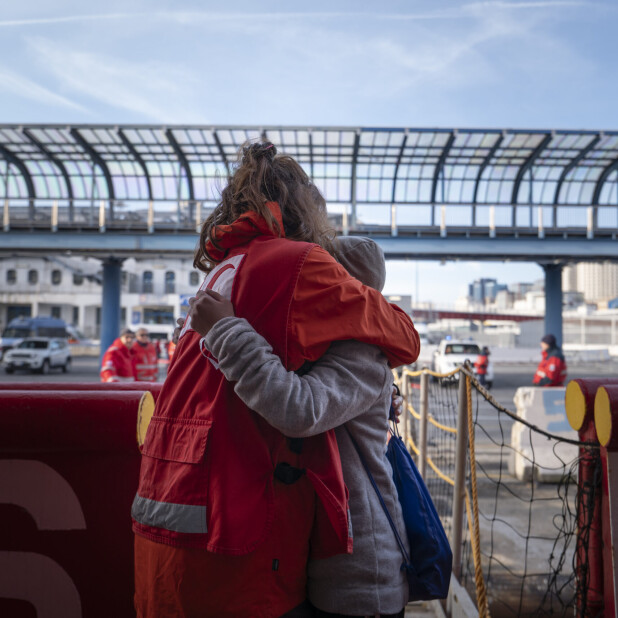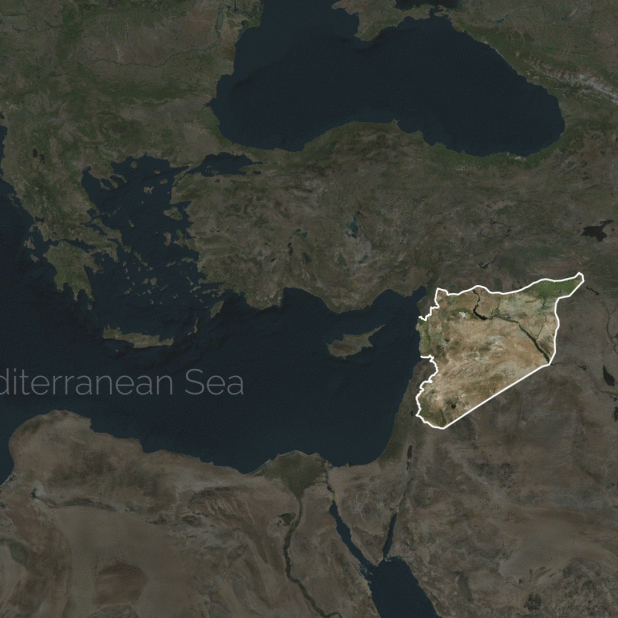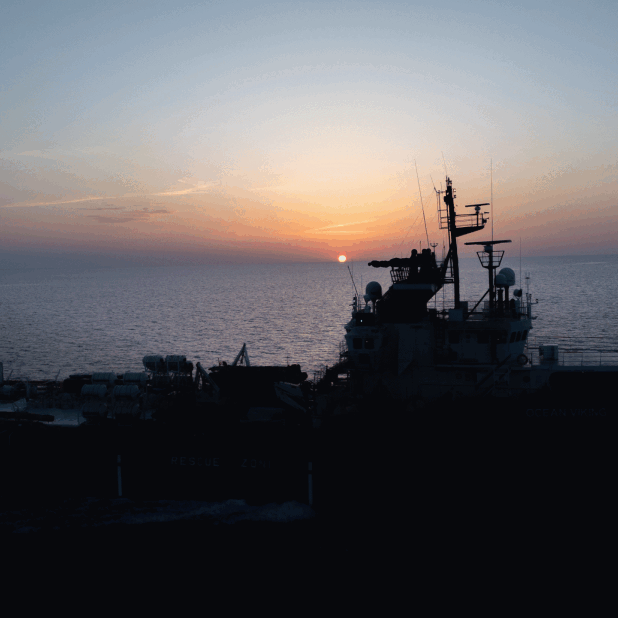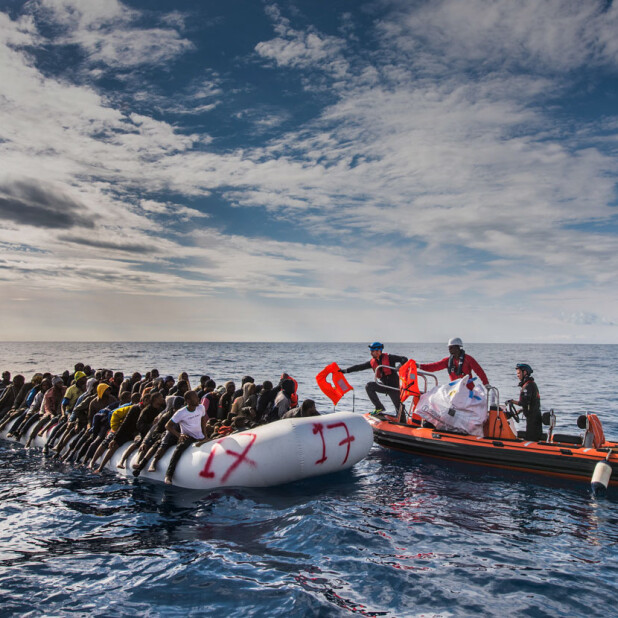
Over the last 10 years, the humanitarian aid space has been progressively reduced as rescue vessels have been criminalized. Earlier in April, the Libyan government shut down the work of 10 major humanitarian organizations, including Doctors Without Borders, Norwegian Refugee Council, and the UN High Commissioner for Refugees.
Libya is the main country of departure for the boats in distress rescued by the Ocean Viking. Migrants already face violence in Libya, and this harsh measure by the State will only see an increase in detention, extortion, and abuse.
Libya’s internal security agency, ASI, which is run by the country’s internationally-recognized government, have accused these 10 NGOs of “plan[s] to settle migrants of African origin in Libya,” a false claim that the Libyan government describes as a “hostile act, aimed at altering the demographic composition of the country and threatens Libyan society,” reported AFP and InfoMigrants. The very fact of providing food, clothing, and essential medical care is therefore considered as a “hostile activity” on the grounds that it would encourage people of African origin to remain in Libya.
These allegations are reminiscent of those levelled against rescue vessels, which, by their mere presence at sea, are accused of inducing migration, a charge refuted by numerous studies, including the scientific journal Nature in August 2023.
This shutdown affects the NGOs International Rescue Committee, Norwegian Refugee Council, Terre des Hommes, Danish Refugee Council, Doctors Without Borders, International Medical Corps, CARE, Intersos, Acted, and Cesvi, as well as the United Nations High Commission for Refugees (UNHCR) . These organizations, which have provided humanitarian aid for years, are today confronted with the closure of their offices, the freezing of their bank accounts, and the harrassment and interrogation of their staff.
Accused of “encouraging values contrary to Libyan identity, such as Christianity, atheism, the promotion of homosexuality and moral decadence”
The accusations levelled by the ASI against these NGOs are particularly worrying: the State claims these humanitarian agencies arecompromising national identity by introducing “Christian, atheist and homosexual values”. In addition, the Libyan authorities accuse these NGOs of money laundering and human trafficking.
The closure of these NGOs follows a letter from 17 European ambassadors and a UN official, dated March 27, which condemned the ASI’s actions against six humanitarian organizations, including the interrogation of their staff and confiscation of their passports. Human Rights Watch had also denounced the proliferation of abusive laws aimed at restricting the activities of aid organizations.
On April 17, the head of the UN mission in insisted that “the targeting of humanitarian organizations, migrants, refugees, and asylum seekers must stop”.
SOS MEDITERRANEE is therefore profoundly distressed by the situation in Libya, which leaves migrants without a solution for accessing essential medical care, humanitarian assistance, or adequate protection in an increasingly violent context.
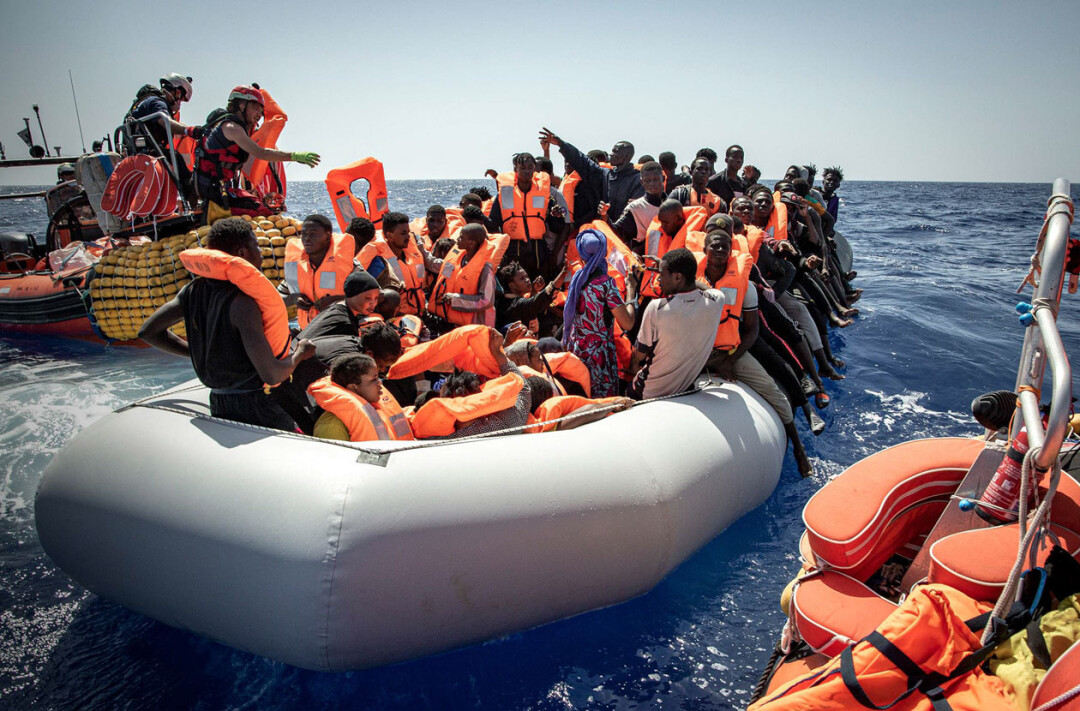
The European and Italian authories must cease to support a system that condemns people to suffer further abuse in Libya and at sea, and punishes those who try to help them."
The infernal loop of inceptions between Libya and the sea
At a time when Libya’s internal security agency is shutting down the work of international humanitarian organizations, the controversial 2017 migration agreement between Italy and Libya is in the process of being renewed. Since February 2017, this policy has led the EU to train, equipe and finance Libyan coast guards to intercept boats in distress and forcibly return people to Libya where neither their fundamental rights nor their safety are guaranteed.
On the contary, women, men and children are once again exposed to the worst abuses in the very country they were trying to flee: torture, rape, extortion, human trafficking. And it is precisely these abuses that the 10 NGOs working with migrants in Libya have been documenting for years. These same acts of violence have been widely recounted by those rescued by SOS MEDITERRANEE,
Today, the international humanitarian organizations in Libya that are being forced out, even though the needs are immense. The sea rescue NGOs, which have long been hampered in their rescue work, have constantly denounced these attacks on maritime law. In Libya as at sea, SOS MEDITERRANEE reaffirms that humanitarian action must be preserved at all costs. The sole aim is to save lives and restore the dignity of those rescued.

